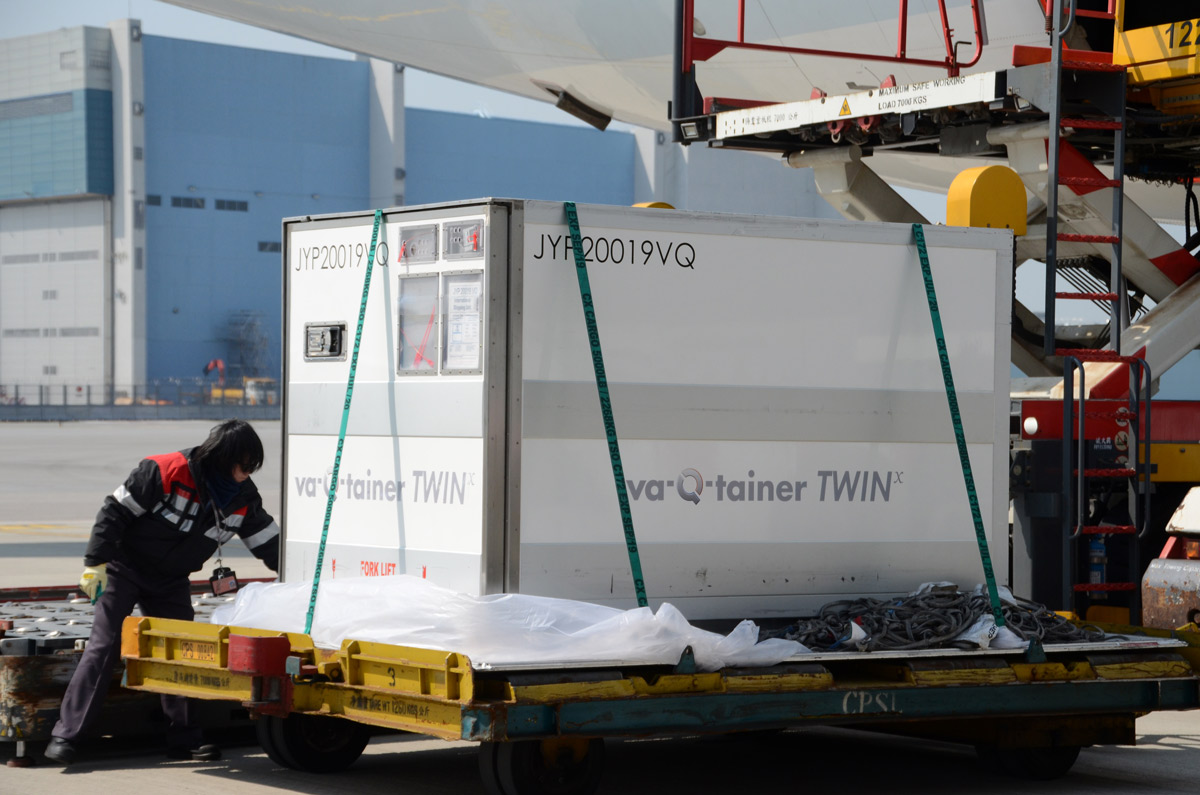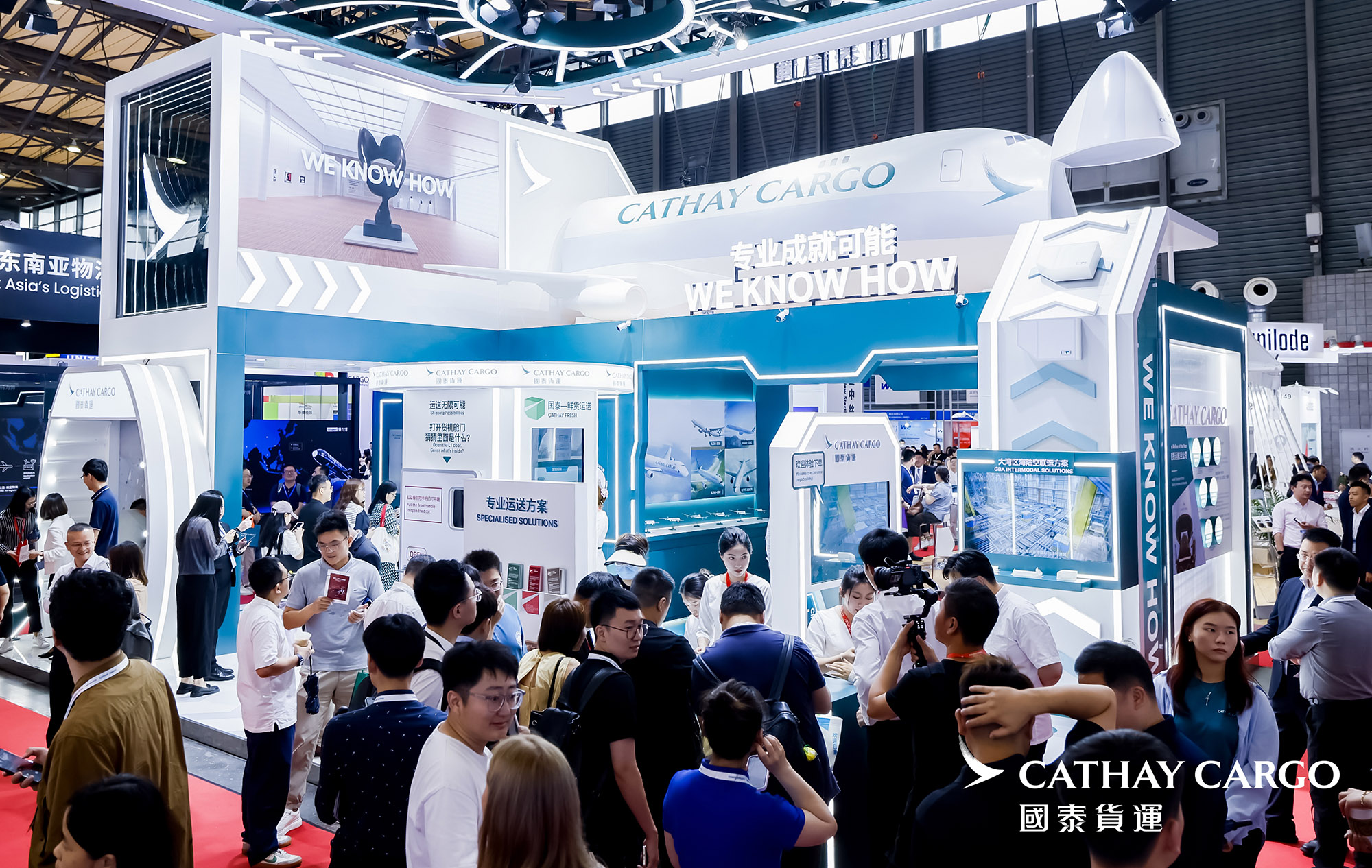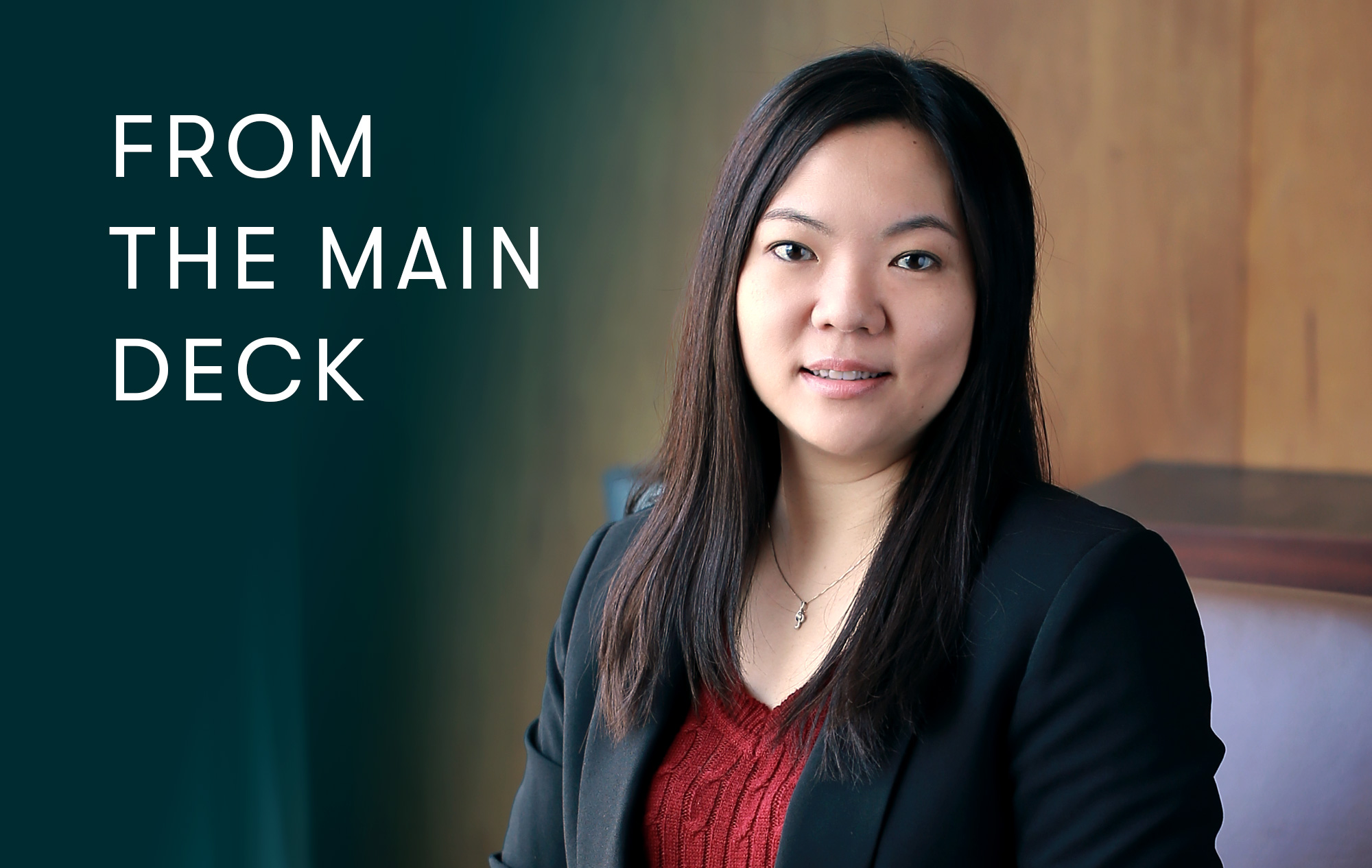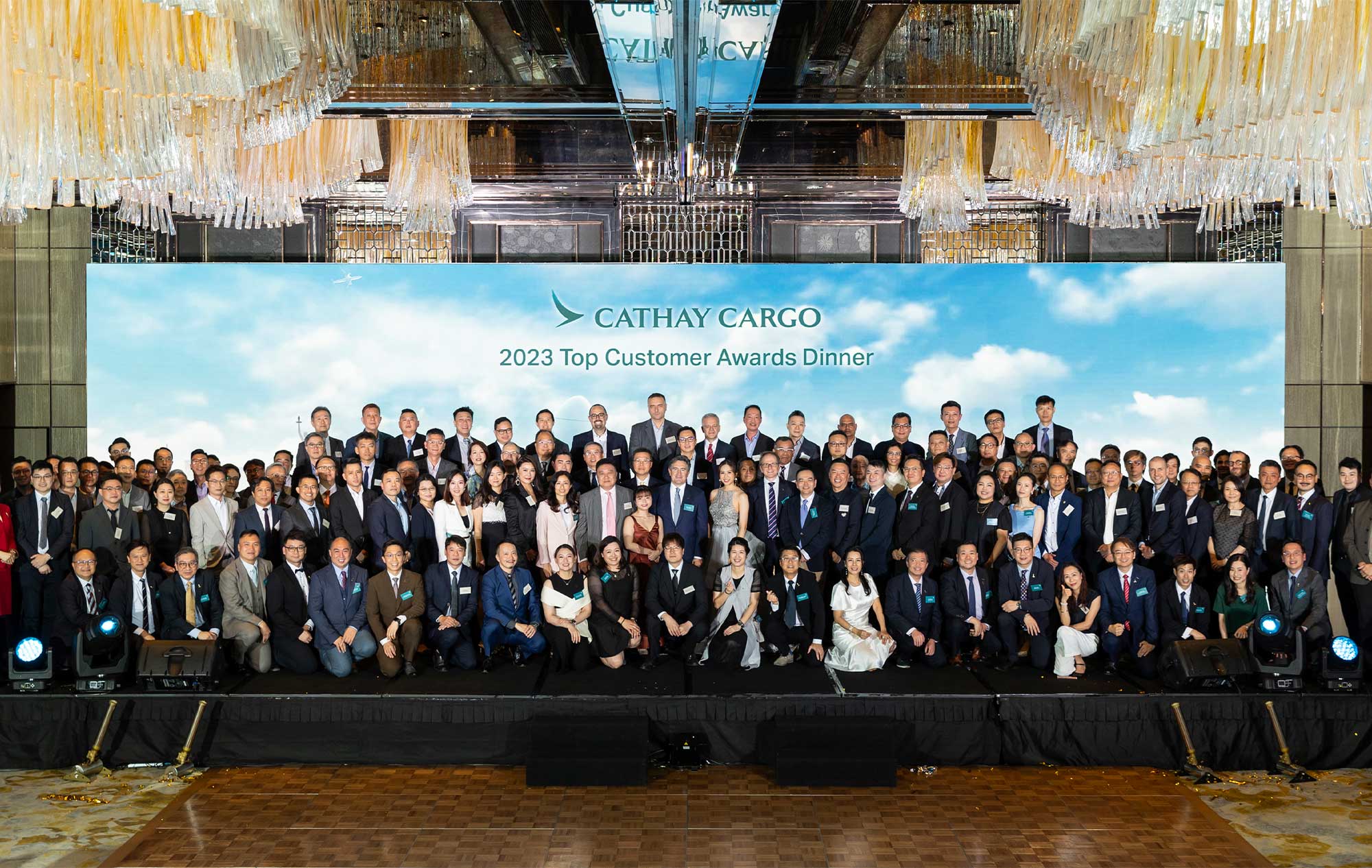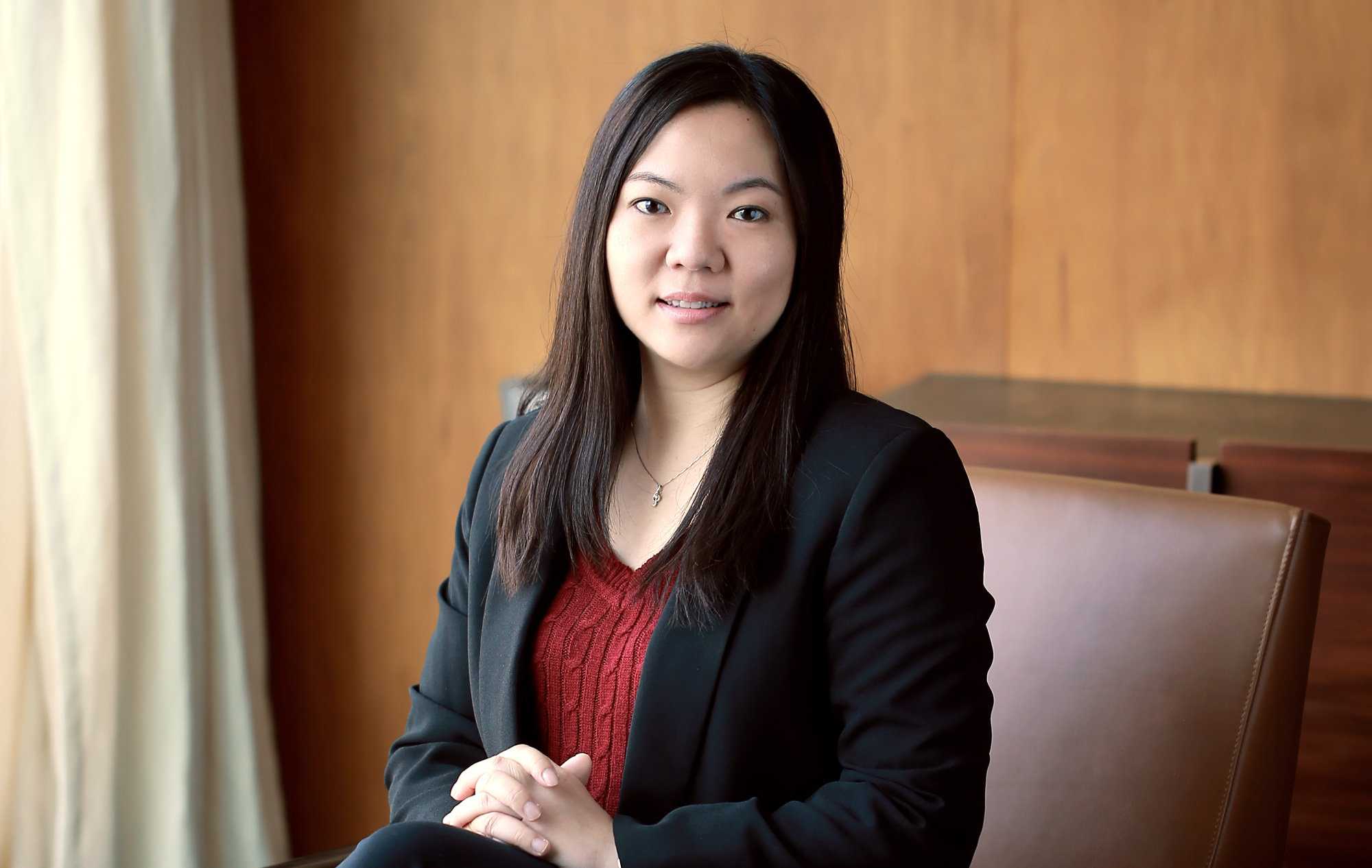High-value, temperature sensitive shipments are growing focus for the air cargo industry, and with valuable, potentially life-saving shipments, it’s vital they get there in good order and free from the dread temperature excursion that can make them worthless on arrival.
The partnership with va-Q-tec brings a new option in temp-chain containers to Cathay Pacific Cargo’s customers, so what can they expect?
Firstly, a range of container sizes from a four-litre clinical trial box to something that occupies two US pallets, offering six temperature ranges from -60oC to +25oC. va-Q-tec’s Global Partner Manager Will Staddon adds: “We guarantee all of our temperature ranges for 120 hours, but that’s at 30oC with no load inside the container. In reality, you could get 10 days to two weeks.”
Those are impressive figures, all the more so given that these are not active containers, which means they do not require power, while their slimline design, thanks to the patented vacuum-insulation panels means they take up less space on board, as Staddon explains.
“Compared to cold boxes, our design does away with the polystyrene, which enables our product to be thinner and more conducive to airfreight as the volumes are smaller,” he says. “So for a consignment where you would ordinarily use ten pallets, you might only need four.”
However, performance is not compromised. Staddon adds: “Compared with active containers, they do not need to be plugged in and, in theory, nothing can go wrong provided you do not open the door. You don’t need to worry about battery life, or whether the handler has read and input the right temperature and we are one of the few suppliers that can offer temperatures of -25oC without using dry ice – and that’s useful for dangerous goods legislation.”
It also means that these are appropriate containers for shipments to and from destinations with less developed air freight infrastructure. Staddon says: “Some stations do not have cool rooms or power points. Our product, depending on ambient temperature, would be safe for up to a week in a general cargo warehouse.”
And while pharma is an obvious shipment, the containers have also been used to carry adhesives, microchips, precision lenses and also chocolate.
Another benefit is that the containers are not classed as ULDs. Staddon adds: “In most markets that means we are able to go door to door, so it’s an unbroken temperature chain, providing all the paperwork is right. While the product is based on science we do not have magical powers when it comes to customs.”
The partnership will give va-Q-tec access to the up and coming Chinese market, for which door-to-door clinical trial containers could be a useful product. Although the company already has network stations at Tokyo, Incheon and Singapore as part of it current 27 global bases, it is looking forward to working with Cathay Pacific because of that access to the Chinese mainland via its route network. “It’s one of the reasons why we see Cathay Pacific as a key partner for us,” says Staddon.
